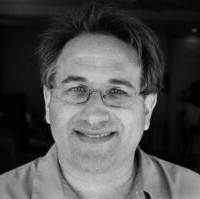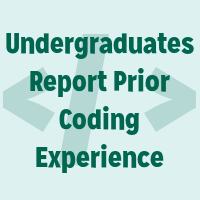White House Announces New Members to the President’s Council of Advisors on Science and Technology; Several Computer Science Researchers Included
 Contributions to this post were provided by the Computing Research Association’s Senior Policy Analyst Brian Mosley.
Contributions to this post were provided by the Computing Research Association’s Senior Policy Analyst Brian Mosley.
Yesterday, President Biden announced 30 of America’s most distinguished leaders in science and technology as members of his President’s Council of Advisors on Science and Technology (PCAST).
PCAST is the premier science advisory committee within the Executive Office of the President and is the sole body of advisors charged with making science, technology, and innovation policy recommendations to the President and the White House. Established by Executive Order, it is an independent Federal Advisory Committee composed of distinguished individuals from industry, academia, and non-profit organizations with a range of perspectives and scientific expertises.
The announcement builds on President Biden’s commitment to, “refresh and reinvigorate our national science and technology strategy.” In January, when the President announced his nomination of Dr. Eric Lander as the President’s Science Advisor and a member of his Cabinet, he tasked Dr. Lander and the PCAST co-chairs with five questions to lead to recommendations to the Administration, “on the general strategies, specific actions, and new structures that the federal government should adopt to ensure that our nation can continue to harness the full power of science and technology on behalf of the American people.” Reforming the general membership of PCAST is another step in following through with that strategy. CRA applauded that announcement earlier this year and we continue to applaud the effort to keep “science…always…at the forefront” of the country’s endeavors.
The new membership includes a number of computer science researchers:
- Eric Horvitz is a leading researcher in artificial intelligence (AI) and issues at the intersection of technology, people, and society – including the technical and societal challenges and opportunities presented by AI’s uses. He is Chief Scientific Officer at Microsoft and former Computing Community Consortium (CCC) Council member who was the keynote speaker at CCC’s Artificial Intelligence For Social Good workshop in June 2016. Dr. Horvitz is the third CCC alumni to serve as a member of PCAST; Susan Graham and Daniela Rus served on past versions of the council.
- William Dally invented hardware architectures that power parallel computing, modern supercomputers, and artificial intelligence as we know it today. He is the Chief Scientist and Senior Vice President for Research at NVIDIA, a leading computer chip and technology company.
- William Press is a computer scientist, computational biologist, and astrophysicist who co-discovered the mathematical model for predicting the distribution of masses of galaxies throughout the universe. He is the Leslie Surginer Professor of Computer Science and Integrative Biology at The University of Texas at Austin.
- Phil Venables is a computer scientist, software engineer, and expert in technology, security, and enterprise risk who has co-founded and led multiple corporate and industry-wide cybersecurity initiatives focused on safeguarding critical infrastructure in the financial sector. He is Chief Information Security Officer at Google Cloud.
- Andrea Goldsmith is a pioneer in the field of wireless communications whose discoveries have influenced cellular and WiFi networks all over the world. She is the Dean of the School of Engineering and Applied Science and the Arthur LeGrand Doty Professor of Electrical and Computer Engineering at Princeton University, and was the first woman to win the Marconi Prize.
For more information, see the full white house press release.









